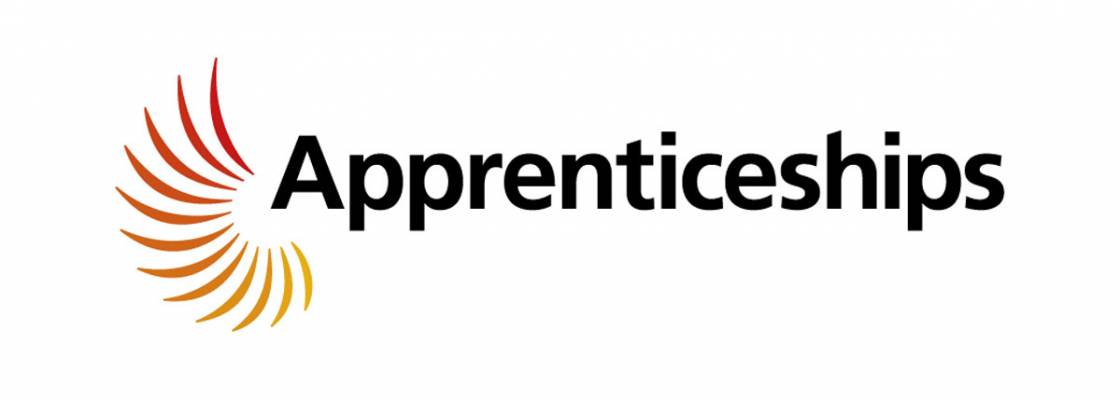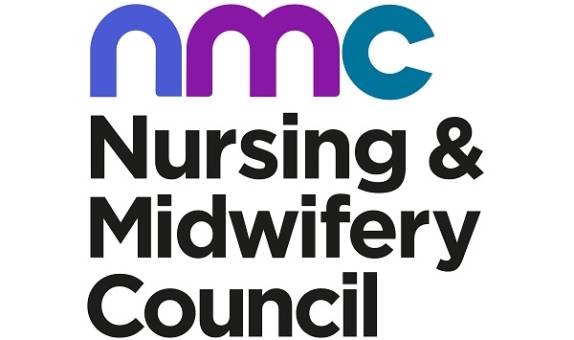Nursing Associate FdSc Apprenticeship

Teaching Excellence Framework (TEF) Gold award
Our commitment to high quality teaching has been recognised with a TEF Gold rating. The University has received an overall rating of Gold, as well as securing a Gold award in the framework's two new student experience and student outcomes categories.
Why choose this programme?
As a nursing associate, you will deliver hands-on care to patients and will work alongside healthcare support workers (holding a care certificate) and fully qualified registered nurses, bridging the existing gap between the two roles. You will play a key part in the multi-disciplinary workforce that is needed to respond to the future needs of the public and patients.
This programme is available as a two-year full-time apprenticeship (employment based, with part-time university attendance). To apply for the apprenticeship route you will need to be in full-time employment as a health care support worker or a similar health or social care role.
Your placements will be external to your usual place of work. Your employer will need to agree to release you from the workplace for protected practice and theoretical learning. This includes protected time for external placements, identified protected learning within your usual place of work, simulation, study days and guided learning. The apprenticeship tuition fees are funded through the apprenticeship levy payable via your employer.
Successful completion of the programme will equip you to work as a Nursing Associate and to progress your career within the health and social care sector. Through a combination of theoretical learning and practice placements you will develop a wide range of specialist and transferable clinical, care and interpersonal skills (including medicines management). Practice placements will also give you the opportunity to gain a wide range of experiences through exposure to different health and care settings.
Please note: the content and structure of the programme may change in line with the standards set by the Nursing and Midwifery Council (NMC).
| Attendance | Apply | Year of entry |
|---|---|---|
| 2 years full time (employment based, with part-time university attendance) | Enquire via the KU Apprenticeship Team | 2024 2025 |
| Main Location | Kingston Hill |
Reasons to choose Kingston University
- We are top in London for Nursing (The Times Good University Guide 2025).
- We are in the top 10 in the UK for General Nursing (The Guardian University Guide 2025).
- We won two awards at the 2024 Student Nursing Times Awards for Nursing Associate Training Programme Provider of the Year and Nursing Associate Trainee of the Year. Our students and programme have been successful over the years, winning Student Nursing Times Awards in 2019 and 2023.
- You'll develop a range of specialist and transferable skills (including medicines management) through clinical placements in a variety of settings. You'll have the opportunity to gain knowledge and experience in the fields of adult, child, mental health and learning disabilities.

Accreditation
This degree confers both an academic award and a professional qualification in nursing. On completion of the programme, students are recommended to the Nursing and Midwifery Council for professional registration.
What you will study
This programme is designed to meet the NMC requirements for Nursing Associates. You will be supported to achieve the competencies, communication, relationship management skills and nursing procedures specified in the Standards of Proficiency for Nursing Associates (NMC 2018).
Year 1
Year 2
Year 1 develops a broad understanding of the nursing associate knowledge base and enables the student to provide reasoned explanations of relevant issues.
Core modules
Personal and Professional Development 1
30 credits
This module addresses professional and personal development and runs longitudinally throughout Year 1. It integrates and applies skills, knowledge and values acquired in other modules and provides academic skills support and development throughout your first year of study. The principles and skills of reflection are introduced and practised.
The module also addresses wider issues known to influence successful study outcomes, such as wellbeing, resilience and support networks. This module will introduce you to Future Skills through engagement with Navigate. This module explores the application of the NMC Code (NMC, 2018) and the professional principles, values and skills required to safeguard vulnerable people, optimise the quality of care and enhance the experience of people accessing health and social care. The content explores the domains of ‘prioritising people', ‘practising effectively', ‘preserving safety' and ‘promoting professionalism and trust', as applied to a range of user groups.
Applied Anatomy and Physiology
30 credits
This module explores the foundations of human anatomy, physiology and pathophysiology relevant to healthcare practice. The content covers the body's key systems and processes, the mechanisms for maintaining homeostasis and an introduction to human development across the lifespan. The module also introduces selected pathophysiology associated with common disease processes in order to assist students contextualise their learning to their clinical settings.
Skills for Healthcare Practice 1
30 credits
This module will enable the student to develop and apply a range of skills to the holistic assessment and monitoring of people within their care, documenting progress and reporting outcomes. Students will be introduced to the required skills and underpinning knowledge so that they can contribute to the ongoing assessment and recognise when it is necessary to escalate findings to other members of the multidisciplinary team for reassessment.
Promoting Health and Wellbeing
30 credits
This module will set healthcare in its wider social context, providing participants with an understanding of the various influences on health outcomes and inequalities, the relationship between mental and physical health, and their roles in promoting wellbeing. Effective communication skills for supporting people to manage their health and care will be explored.
Year 2 promotes a more detailed understanding of the subject matter covered in Year 1, related theories and concepts, enabling students to provide substantiated arguments applied to relevant issues.
Core modules
Personal and Professional Development 2
30 credits
This module addresses professional and personal development and runs longitudinally throughout Year 1. It integrates and applies skills, knowledge and values acquired in other modules and provides academic skills support and development throughout your first year of study. The principles and skills of reflection are introduced and practised. The module also addresses wider issues known to influence successful study outcomes, such as wellbeing, resilience and support networks.
This module will introduce you to Future Skills through engagement with Navigate. This module explores the application of the NMC Code (NMC, 2018) and the professional principles, values and skills required to safeguard vulnerable people, optimise the quality of care and enhance the experience of people accessing health and social care. The content explores the domains of ‘prioritising people', ‘practising effectively', ‘preserving safety' and ‘promoting professionalism and trust', as applied to a range of user groups.
Skills for Healthcare Practice 2
30 credits
This module builds on the Year 1 module: Skills for Healthcare Practice 1. The module will enhance students' knowledge of the different approaches used to assess and promote a person's health and wellbeing, and to identify those who are at risk. Students will continue to develop the knowledge and core skills required for safe, effective assessment and care management within the practice setting.
The Acutely Unwell Person
30 credits
This module enables students to develop the knowledge and skills necessary to deliver safe, effective, compassionate, evidence-based, person-centred care when a person's condition is deteriorating. The module builds on students' knowledge of anatomy and physiology. It will equip them to recognise people who are at risk of deteriorating mental and physical health, undertake timely structured assessments, provide appropriate interventions and care across the lifespan and in a variety of settings.
Long Term Conditions
30 credits
This module will introduce students to the principles of working with people across the lifespan who live with complex and/or long-term conditions (LTC's) in primary and/or secondary care settings.
Entry requirements
Teaching and assessment
This programme enables you to develop a broad understanding of care needs, relevant to all fields of nursing. It equips you to identify holistic needs and deliver care to a diverse range of individuals. There is an emphasis on the relationship between physical and mental health care throughout the lifespan, and the wider influences on health and wellbeing.
The integration of theory and practice is achieved through learning, teaching and assessment strategies which require you to reflect on your experiences in practice. Nursing knowledge and evidence are applied to these experiences, with an increasing depth of discussion and analysis as you progress through the course.
You will learn through lectures, seminars and online work in our Virtual Learning Environment (CANVAS). You will also participate in tutorials, workshops, conferences and project work. Your learning in the simulation suite will help you relate theory to practice.
The programme is offered through day release, and blocks of external placement practice. During your on-the-job learning, you will be working as a trainee nursing associate carrying out activities relevant to the clinical area you are working in.
Who teaches this programme?
End-Point Assessment (EPA)
Each apprentice on an approved Apprenticeship Standard is required to take an End-Point Assessment (EPA) to complete the programme. The EPA is delivered by an End-Point Assessment Organisation (EPAO) that is registered with the Education and Skills Funding Agency (ESFA).
The EPA is either integrated as part of the apprenticeship or completed after the course element. If an apprentice is completing the EPA after the course element, they must ensure they have successfully completed their learning, achieved the gateway requirements and finished uploading their evidence prior to taking the EPA.
After you graduate
This programme will equip you to work as a Nursing Associate and enhance your career in the health and social care sector. You may be able to progress to a shortened nursing degree course.
The programme will enable you to develop a wide range of specialist and transferable clinical, care and interpersonal skills (including medicines management).
Visit NHS Careers for more information about the role of Nursing Associates working in the NHS.

Next steps
Employees
If you are currently employed full time and would like to find out more about apprenticeships, please ask your employer to contact the Kingston University apprenticeship team.
Employers
If you are an employer interested in how apprenticeships can support your organisation and employees, please contact the apprenticeship team for further details.
Course changes and regulations
The information on this page reflects the currently intended course structure and module details. To improve your student experience and the quality of your degree, we may review and change the material information of this course. Course changes explained.
Programme Specifications for the course are published ahead of each academic year.
Regulations governing this course can be found on our website.















